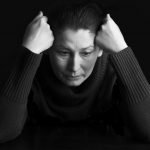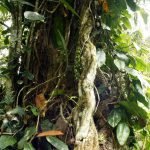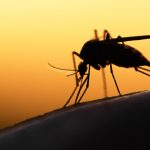A Natural Mosquito Killer: A Replacement for Organophosphate Insecticide?
Node Smith, ND
University of New Mexico scientists may have found a way to do just that with a simple hack that uses ordinary baker’s yeast and orange oil to kill mosquito larvae before they grow into the buzzing, biting scourge of humanity.
One simple hack that uses ordinary baker’s yeast and orange oil to kill mosquito larvae
In a paper published this month in the journal Parasites & Vectors, they report their method is effective against Aedes aegypti mosquitoes, which transmit dengue, chikunguya and Zika.
Essential oils from plants like orange oil have known insecticidal properties, said Ivy Hurwitz, PhD, a research associate professor in UNM’s Center for Global Health.
A way to inject orange oil into yeast cells
“Plants use it to protect themselves against predators,” she says, “so we’re just using it in a different way.”
Simply put, Hurwitz and her collaborators have found a way to inject orange oil into yeast cells. The oil kills the yeast, but tiny droplets of oil remain contained inside the yeast’s tough cell wall.
Using a proprietary method, oil residue is washed from the outside of the yeast cells, which are then be dried into a powder — and later mixed with water to create a solution that can be sprayed on the ponds and puddles where larvae hatch and grow.
Turns out mosquito larvae love to munch on yeast
It turns out mosquito larvae love to munch on yeast, Hurwitz says, but they succumb when they ingest the oil-laden fungal cells.
The team’s patented technology solves the problem of introducing toxic chemicals into the environment that can harm humans and other creatures and tend to lose their effectiveness over time, Hurwitz says.
Patented technology solves the problem of introducing toxic chemicals into the environment that can harm humans and other creatures and tend to lose their effectiveness over time
“It’s a step away from using the larvicides that are more harmful to humans, like organophosphates,” she says. “A lot of mosquitoes are starting to develop resistance to these things.”
And it’s a more effective than simply spraying essential oils into the environment, because the oils can be toxic in high concentrations, and they rapidly break down when exposed to sunlight. (The yeast cells protect the oil droplets from degrading in the sun, Hurwitz says.)
Getting larvae to eat oil-laden yeast means much lower concentrations of oil are required to eradicate them
In addition, getting the larvae to eat oil-laden yeast means much lower concentrations of oil are required to eradicate them, she says.
Hurwitz and her team started working on the project for about four years ago, when there were worldwide concerns about the newly identified Zika virus. They knew that larvae ate yeast — and when grown in the lab they were fed fish flakes, which are mostly yeast.
“We thought, ‘Why don’t we put the essential oil into the yeast?'” Hurwitz says.
Now, collaborators in Brazil are testing the yeast larvicide in controlled field studies with local strains of mosquito larvae. The team has shown in the lab that the method eradicates virtually all of the larvae, but it remains to be seen whether that will be as effective in a natural setting, Hurwitz says.
Additional work is being done to test the effectiveness of the method on other mosquito species
Further work is being done to test the effectiveness of the method on other mosquito species, she says. Meanwhile, she hopes to see the technology, which uses simple, inexpensive ingredients, adopted in tropical regions where mosquitoes are especially prevalent.
Source:
1. Michael J. Workman, Bruno Gomes, Ju-Lin Weng, Linnea K. Ista, Camila P. Jesus, Mariana R. David, Marcelo Ramalho-Ortigao, Fernando A. Genta, Scott K. Matthews, Ravi Durvasula, Ivy Hurwitz. Yeast-encapsulated essential oils: a new perspective as an environmentally friendly larvicide. Parasites & Vectors, 2020; 13 (1) DOI: 10.1186/s13071-019-3870-4

Node Smith, ND, is a naturopathic physician in Humboldt, Saskatchewan and associate editor and continuing education director for NDNR. His mission is serving relationships that support the process of transformation, and that ultimately lead to healthier people, businesses and communities. His primary therapeutic tools include counselling, homeopathy, diet and the use of cold water combined with exercise. Node considers health to be a reflection of the relationships a person or a business has with themselves, with God and with those around them. In order to cure disease and to heal, these relationships must be specifically considered. Node has worked intimately with many groups and organizations within the naturopathic profession, and helped found the non-profit, Association for Naturopathic Revitalization (ANR), which works to promote and facilitate experiential education in vitalism.








